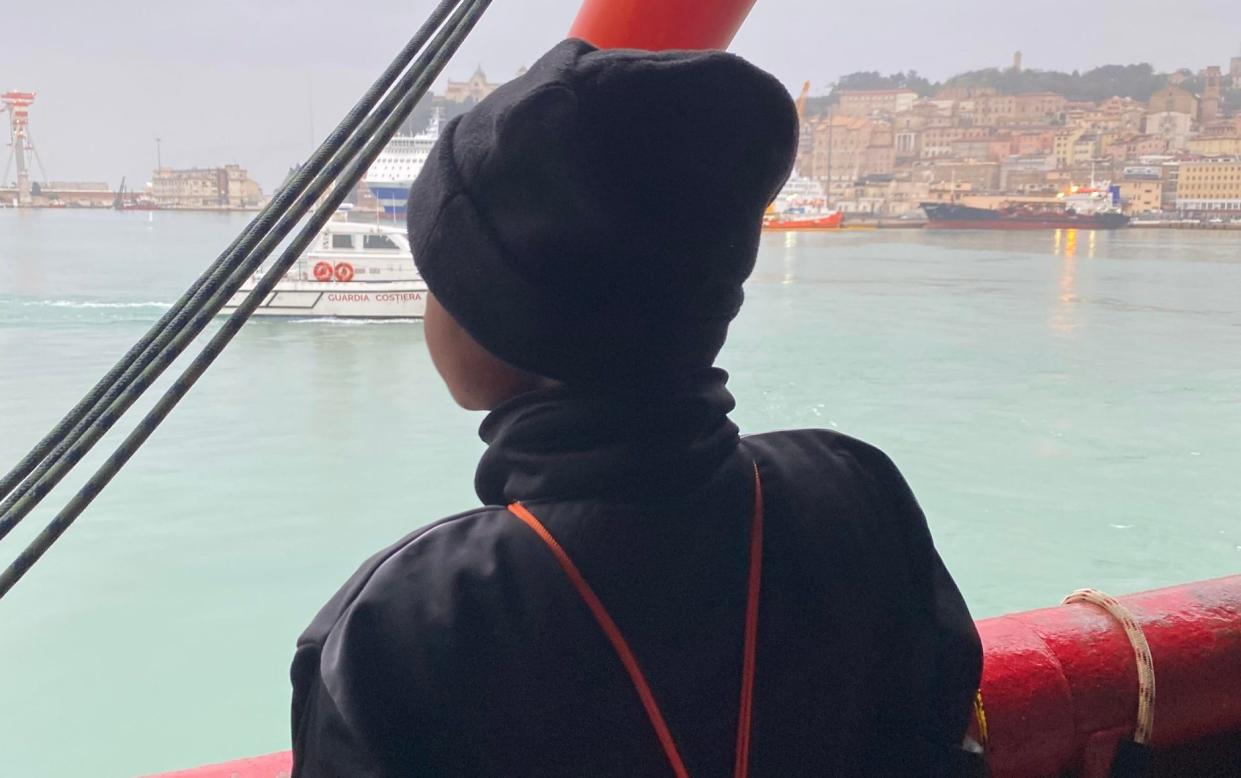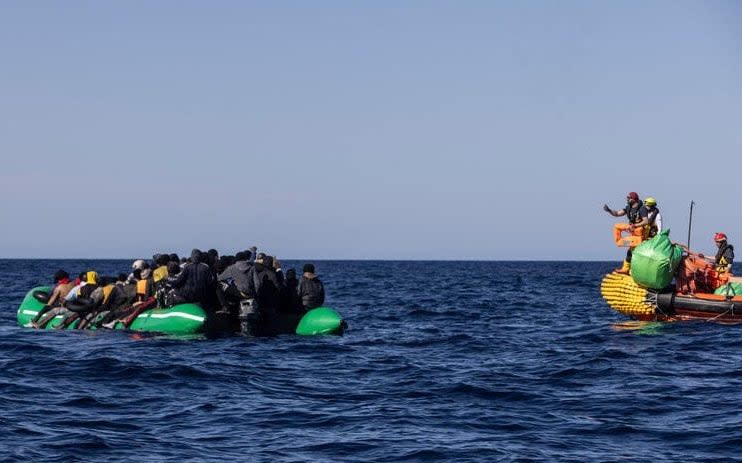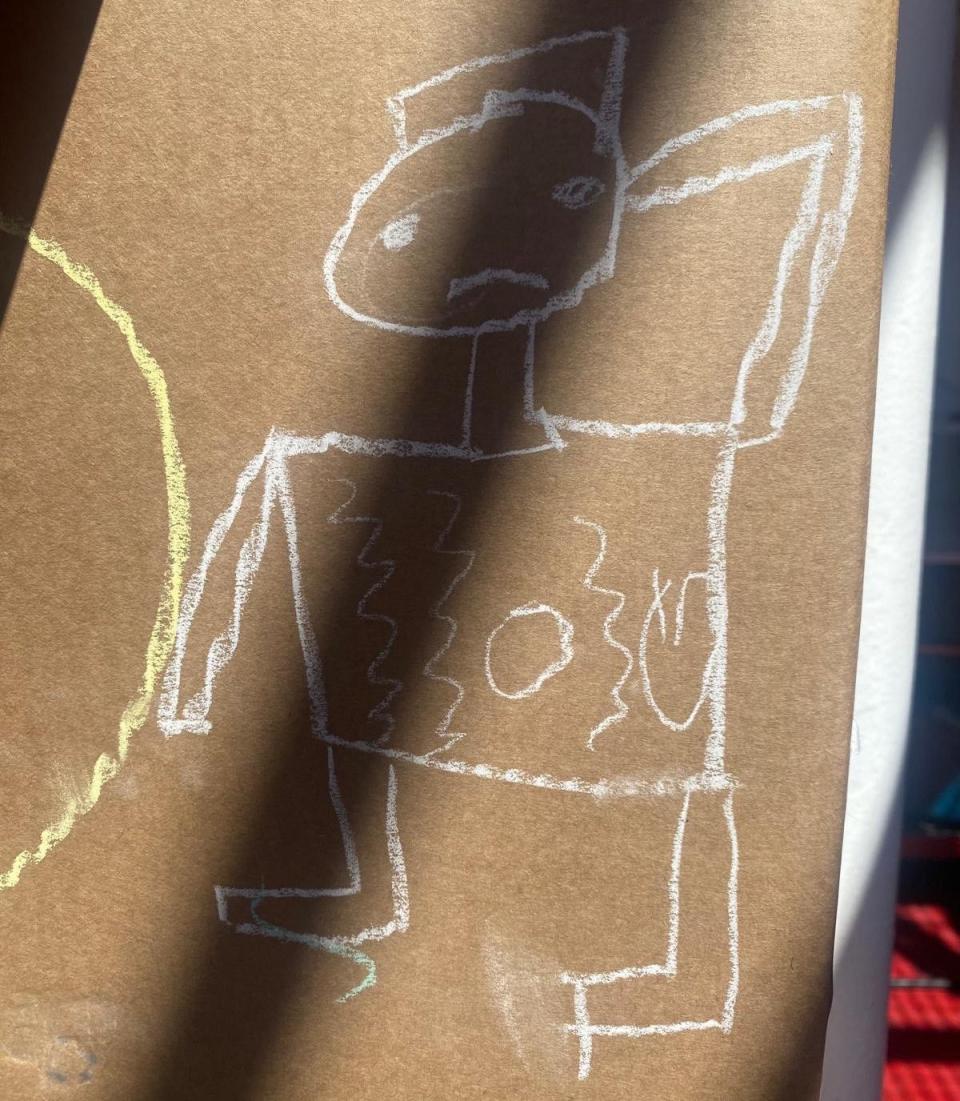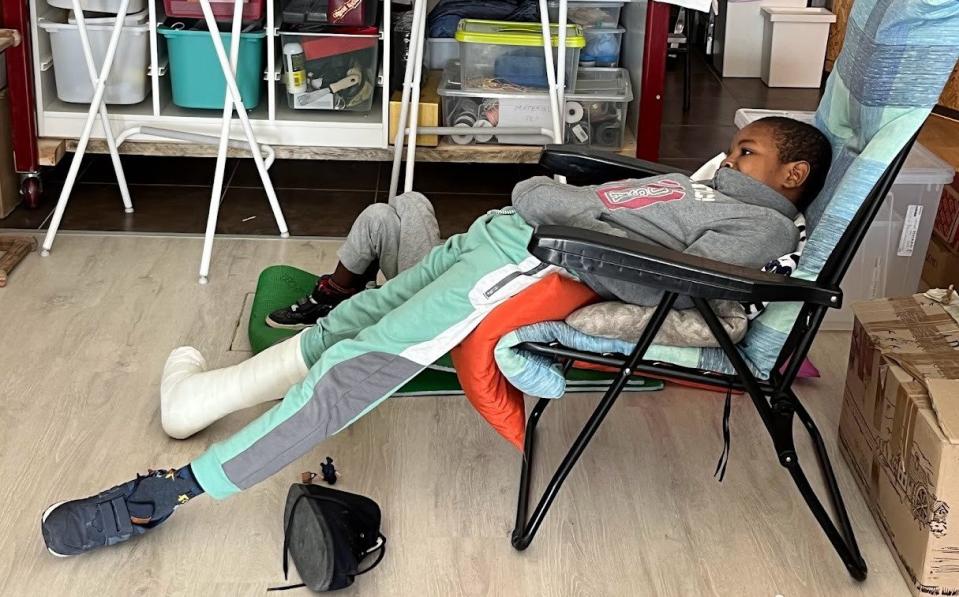Eight-year-old boy travels 3,500 miles in search of a school

As the Libyan coast guard ship inched closer, eight-year-old Oumar trembled in fear.
He had already been picked up once from a dinghy while trying to cross the Mediterranean Sea by the so-called “fezzan”, only to be thrown into a notoriously brutal prison back in Tripoli.
Smuggled out in a garbage bin by two adults, he eventually made it back to the coast to board a second dinghy, joining 23 other children and 60-plus adults on a desperately dangerous sea voyage to Europe.
It is just one part of Oumar’s remarkable journey from a tiny village in Mali to an Italian port city in the hopes of going to school.
Just four months ago, he was living happily with his family near Tambaga, western Mali. But when a jihadist group attacked the area, he fled on foot and became separated from them.
Instead of going back, Oumar kept walking, right across the Sahara desert. He joined different groups of weary travellers along the way and eventually ended up in Libya. But once there he was captured by a Libyan gang that forced him to work as a welder and a painter.
He eventually broke free from his captors, but ended up in Ain Zara jail after his first attempt to sail to Europe was unsuccessful.
Hidden in a bin, he escaped again and made his way to Zawiya, just outside of Tripoli. There he joined another dinghy along with a bigger boy – also named Oumar – who recognised him from the Tripoli prison and acted like a big brother for the rest of his trip.

After days adrift in the Mediterranean Sea, the two Oumars thought they would be taken back to Libya when they spotted the coast guard boat.
But the boys and the rest of the boat’s crew were finally safely rescued by the NGO lifeboat Ocean Viking. The boat had just responded to another drifting migrant vessel from Libya, one that saw some 60-100 people die.
Oumar was lucky.
“He is an incredible child. When he told me his story, I did everything I could to confirm all the details,” Angela Nocioni, an Italian journalist on board the lifeboat at the time, told the Telegraph. “Every survivor on the dinghy told me, ‘It’s true, he is all alone.’”
Dehydrated, hungry and suffering from hypothermia, Oumar didn’t want to leave Angela’s side once aboard the Ocean Viking. She gave him some chalk and found he could write – the first picture he drew was of a person with a sad face.

The older Oumar told her: “I saw this boy in Ain Zara prison. He was there, not very long, but I remember him, because he was just a child … I saw him again when getting into the dinghy.”
When the Ocean Viking finally docked in Ancona, northeastern Italy, the two Oumars held hands as they walked off the boat. They hugged and then parted ways.
‘Now I can go to school, Papa?’
The younger Oumar was sent to a local leisure centre for processing, where a mediator from Mali was waiting, Ancona migrant centre director Alessandro Fucili told the Telegraph.
“Where is your mama?” the mediator asked in his local Bambara dialect. “In Mali,” Oumar replied.
“Where is your papa?” “In Mali,” he said again.
Oumar said he could remember his father’s phone number by heart.
“So I took out my mobile phone and called the number,” said Mr Fucili. “And his father answered. He was absolutely incredulous.”
After not seeing Oumar for four months, his family feared the worst.
“I’m sorry Papa, that I did not tell you,” Oumar said. “But I am over here. I made it.”
“Over where?” asked his father. “Over here. On the other side… In Europe. Now can I go to school, Papa?”
When doctors checked him over, it was clear he had been mistreated, with scars on his body and a broken bone in his heel that has been treated with a cast.

Mr Fucili called him a “very intelligent, a very brave child” and said the centre was trying to find a place for him in a local elementary school with other migrant children.
Every morning as the centre’s children have breakfast and prepare to head out, Mr Fucili said Oumar asks the same question: “Am I going to school?”

